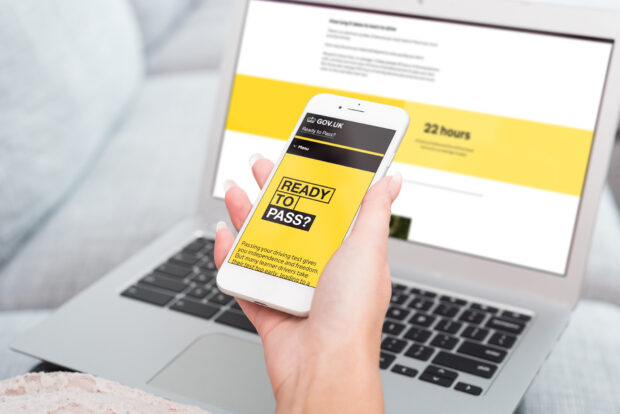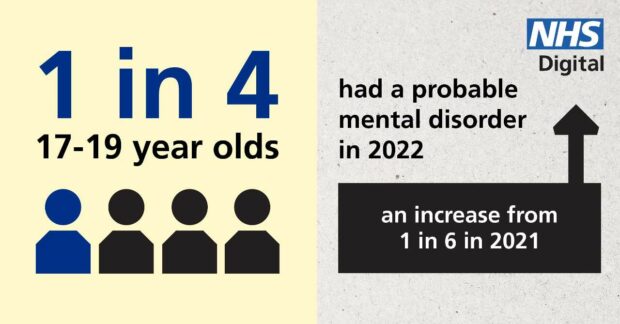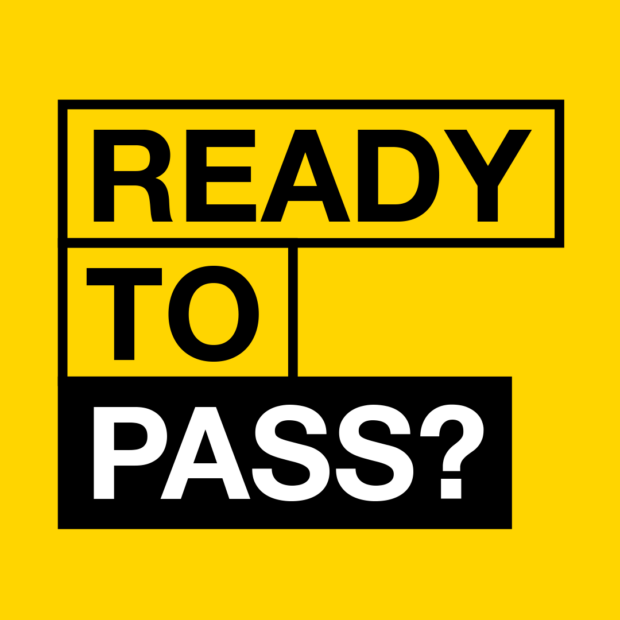
We launched the 'Ready to Pass?' campaign and the website on 18 July 2022. Hopefully you've had chance to visit.
It's a one-page site that includes important information about the learning to drive process, mock tests, driving test nerves and how the test works.
Since it launched we've had lots of visitors to the website. Lots of learners have taken driving tests and filled in a survey about their experience. And we've had lots of feedback from driving instructors too.
The last 6 months have helped us learn a lot about how the website is working.
So today (Tuesday 7 February 2023), we've launched an improved and expanded website. It’s still at www.gov.uk/ready-to-pass. I want to take you behind the scenes to explain what we’ve learned and what we’ve changed.
What we've learned
From the website, we've been able to see that:
- 88% of people visit on their mobile phone
- people spend an average of nearly 7 minutes on the page
- most people come to the website after reading one of our campaign emails
- the most-clicked link is to the list of the top 10 reasons for failing the driving test
What the post-driving test survey shows
When we email the driving test result to your pupils at the end of their test, it includes a link to a survey to tell us about their experience. We've been asking questions about how they prepared for their test, and this has helped us to learn a lot.
We've seen that:
- 95% of learners who used the website say it was useful in helping them prepare for their test
- 66.6% of learners say they took at least one mock test as part of their preparation
- 45.5% of learners say they took private practice as part of their preparation
We've also seen lots of comments from the survey about how nerves and anxiety have affected learners.
How different preparation affects the pass rate
Analysing the survey data further shows us some interesting things about the pass rate (we know from the survey if the learner passed or failed).
The analysis shows the average pass rate is:
- 47% for learners who said they did not take a mock test with all the parts of the real driving test
- 65% for learners who said they did take a mock test with all the parts of the real driving test
It also shows the average pass rate is:
- 61.7% for learners who said they did not take private practice
- 63.5% for learners who said they did take private practice
Rate of mental disorders among 17 to 19 year olds increased in 2022

Recent research published by NHS Digital has shown how there has been an increase in the number of young people who probably have a mental health disorder.
In people aged 17 to 19 years, rates of probable mental disorder have been rising for some time. The rates were:
- 1 in 10 in 2017
- 1 in 6 in 2021
The latest data shows it increased again to 1 in 4 in 2022.
It's one of the reasons techniques such as mindfulness are becoming more and more common.
Turning these insights into changes

On the improved and expanded website, we’ve added, improved and refined a number of things.
New content
We have added:
- separate pages for each topic area that was on the previous version (learning to drive, managing nerves, mock tests, and the driving test)
- a page to help family or friends who are supervising practice sessions between driving lessons
- a new section for driving instructors
More detail
We’ve given more detail. This includes:
- explaining the 27 skills on the driver's record and the 5 levels of progress learners will make through each skill
- debunking some of the most common driving test myths
- explaining what we recommend should be in a mock driving test
- giving data to back up why things like mock tests can be so beneficial
- providing practical tips on managing driving test nerves and giving more information about how and where to learn mindfulness techniques
San Harper, an approved driving instructor and accredited mindfulness teacher, blogged about how mindfulness can help you and your pupils last year. I'd encourage you to take a look at this if you'd like to learn more.
Improved wording
We’ve also improved wording throughout the website in response to feedback. This includes the main ‘Ready to Pass?’ checklist, so do make sure you download the latest version if you’re giving printed versions to your pupils.
How you can continue to support the campaign
We’ve been really grateful for all the support we’ve had so far from driving instructors.
There are 3 things you can do now to continue your support, and continue to help us develop the campaign. So please do:
- have a look at the improved website at www.gov.uk/ready-to-pass and give your ideas about things you think might be missing in the comments
- take a look at our list of 10 ideas for how driving instructors can support the campaign which is part out our updated toolkit
- fill in in our new survey about mock driving tests so we can find out how we can continue to help you with these (we’ve emailed a link to you, so please check your inbox)
I hope you and your pupils find the improved website useful.

3 comments
Comment by Shaun posted on
I find all the talk about Mindfulness is just that, and very little is actually said about how to deal with it. If you tell people they have a problem, they will have a problem.
In simple terms, stay calm, focus on what you can affect and be respectful.
Comment by jackiehynes posted on
I'm struggling here to ascertain how one can book a driving test...
is the waiting list one year> 2 years? 5 years?
Why can one not book a test on a future date?
Ok I get the whole Covid situation but are we really going to use that an excuse forever?
Comment by John (DVSA) posted on
Hi Jackie
You can book a driving test at https://www.gov.uk/book-driving-test. The service shows available appointments within the next 24 weeks. Tests are not made available further than 24 weeks away.
New appointments are added to the booking service each week, so it's best to keep checking.
We currently have high demand for driving tests. There are 3 main reasons for this:
- fewer tests than usual took place because of restrictions and other factors related to the pandemic
- learner drivers who are not yet ready to take their test have heard that waiting times are high, causing them to book earlier than they normally would
- the pass rate for driving tests - for many years, less than half of people pass on their first attempt, meaning they’ll need to take at least one more test
That's why we're running the 'Ready to Pass?' campaign to help learner drivers understand when they're ready to take the test.
Thanks
John